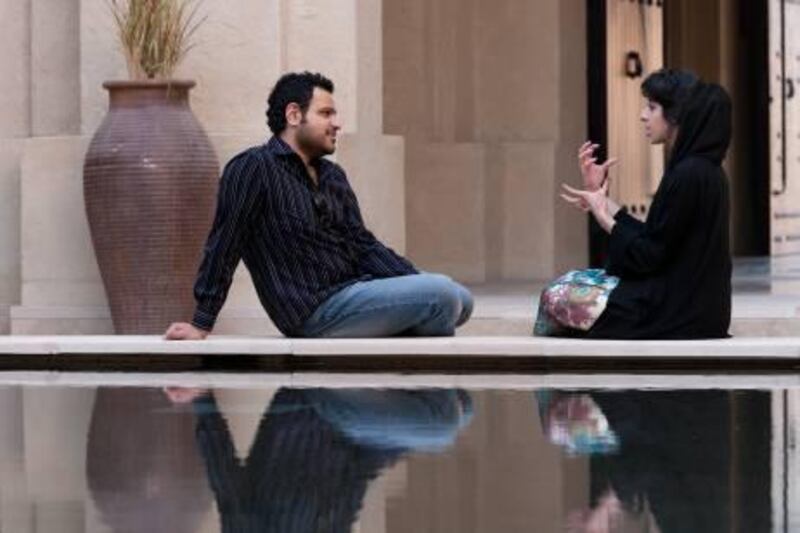Writers are frequently portrayed as curmudgeons who embrace the solitary life.
The eight bubbly Arabic wordsmiths who attended the third and most recent Nadwa, or writers' workshop, turn that perception on its head.
Then again, spending eight days fine-tuning your latest work in your desert villa at the Qasr Al Sarab resort in Abu Dhabi emirate could leave the most jaded wordsmith feeling a tad lighter.
Designed in 2009 by the International Prize for Arabic Fiction and funded by the Emirates Foundation for Philanthropy, the retreat is now in it's third edition. This edition, which wrapped up last week, drew eight promising young writers between the ages of 24 and 42 from across the Arab world and beyond - the UAE to Nairobi - so they could work with acclaimed novelists and mentors to produce new pieces of creative writing.
The short stories or novel chapters they produced during that time are to be published in an anthology celebrating the retreat.
"I was wondering which person I wouldn't get along with," says Waleed Hashim, "but really everyone turned out to be these amazing people."
The Bahraini writer may be only 29 but has already published three historical, Gulf-based novels.
Hashim says the retreat was a revelation for reasons less to do with writing prose.
"The biggest thing I learnt, funnily enough, was not just about how to write better, but to listen as well," he says. "Every day we would gather together and listen to each other's work and by doing this constantly you become better at picking out certain points in your writing. Also, to have someone else listen to your words you always take away something new from each reading."
At the twice-daily group session, each participant was invited to read an excerpt of his or her work and discuss suggestions from the others.
The writer would then choose whether or not to incorporate those suggestions before presenting the amended piece or new selection at a later date.
However as the Mauritian journalist Mohamed Salem points out, there were rules of engagement.
"We were not allowed to change the story or characters," he says. "We basically focused on the technical things, like how to tighten up sentences, for example."
For the Sharjah playwright Muhsin Suleiman, the expectation that he present a selection from his short story during the week was a big challenge to his creative process.
"I normally like working to my own pace," he says. "Sometimes I would write perhaps a paragraph a week, but in this course I wrote for more than five hours straight one night. I had never done this before and it showed me that I can actually do this."
The Sudanese author Amir Tag Elsir, who, along with the Egyptian novelist and journalist Mansoura Ez Eldin, mentored the "students", says the workshop was designed to push writers in different ways.
He was surprised at how each writer's work developed in such a short time, for which he credits the collaborative nature intrinsic to workshops, a format best suited to young writers.
"They should not work alone but always interact with other writers to share lessons and advice," he says. "The writers will give each other light and point out new and interesting things they never thought about in their work."
In the case of Sara Abd Al Wehab, a week of Nadwa proved a catalyst to try her hand at a genre. At home the 24-year-old Kuwaiti - the youngest in the group - writes scathing columns for Kuwaiti newspapers dealing with youth issues.
Through the course, she realised she could perhaps be more effective in cloaking her points with metaphors.
"I normally like making my point very clearly," she says. "But now I learnt I can do it differently, perhaps even writing it in a genre like fantasy and make the same point better."
But it is the friendship forged with the Iraqi journalist and former soldier Ali Ghadeer that she will most cherish after the retreat.
Both expressed fears that the lingering animosity between their countries would prove a stumbling block at the workshop.
"I was a little bit apprehensive as I wondered whether she would accept me, but it turned out our relationship was really strong," Ghadeer says. "That's the beauty of writing or being around other creative people. There is no politics or other issues, everything seems purer."
The Nadwa III compilation is due for release before the end of the year. The contenders selected for IPAF's longlist are to be announced today. Visit www.arabicfiction.org for details.






